By Emily Kaelani Redling
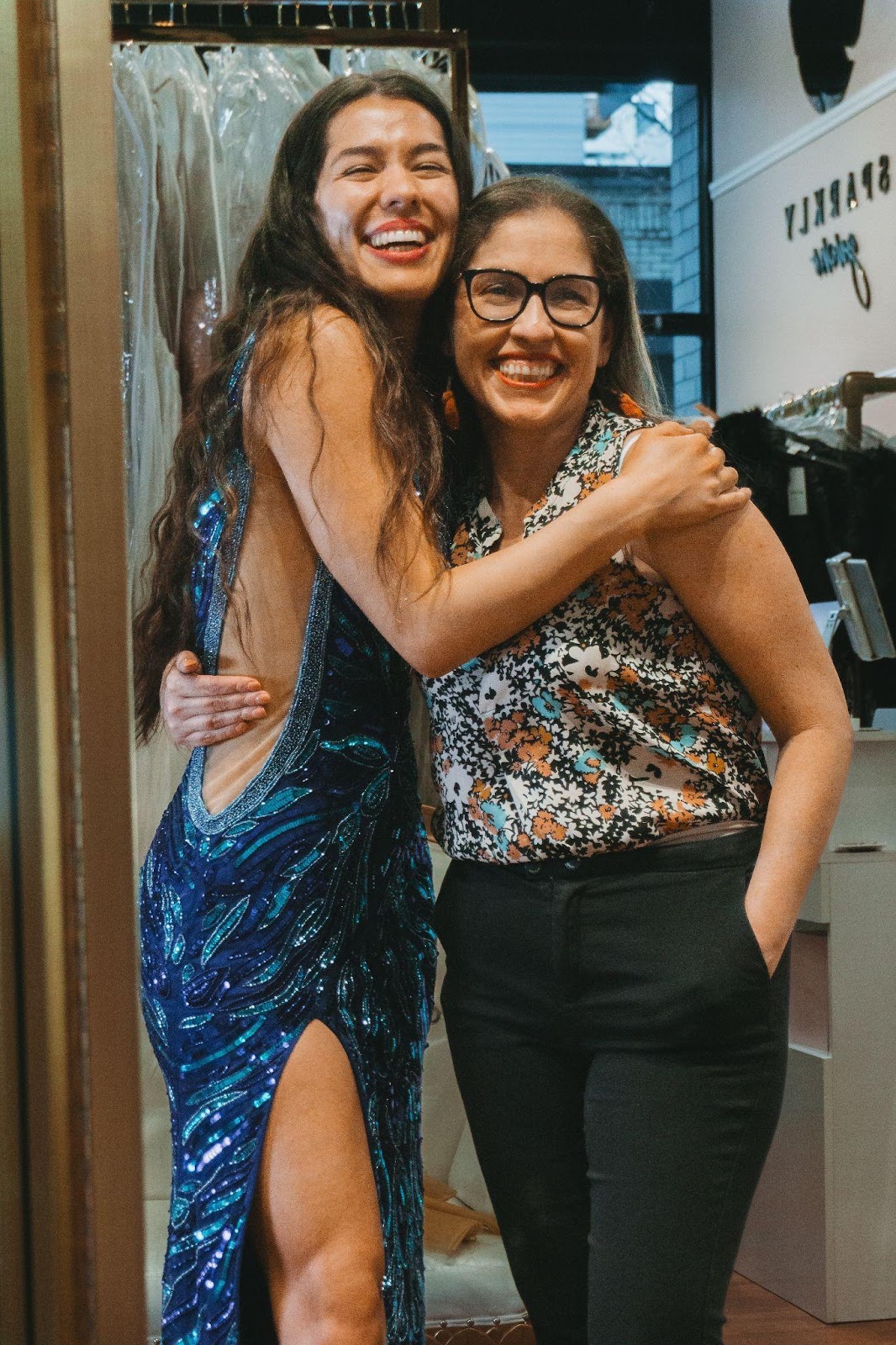
PREFACE
In the heart of downtown Portland sits a family-owned business dedicated to making everyone who enters feel welcomed and beautiful. I got the privilege of meeting with Fabiola, the kind store owner and operator, twice a few weekends ago. My first visit was to gain insight on the business’s inventory, functions, and philanthropic pursuits. My second was to spend time with my sister county titleholders. Both visits consisted of trying on dresses from the most divine selection of gowns.
THE JOURNEY
If there’s one thing you can count on, it’s that a typical Oregon weekend in March calls for snow storms, heavy rain, and gray skies. That was my experience on March 21st, 2025 when I traveled across the Cascade Range to get to Portland, Oregon through what seemed like ceaseless inclement weather. I’d describe myself as a novice when it comes to driving through the mountains and the big city alike, and having been at work since 5am prior to this drive, I think it goes without saying that I was not entirely eager for the three hours it would take me to get from one to the other.
But this post isn’t about the downpour I endured during my journey, nor my distaste for the dismal weather. In fact, it is about my destination that made the entire trip feel as if it was full of sunshine: my arrival at Sparkly Gowns.
THE EXPERIENCE
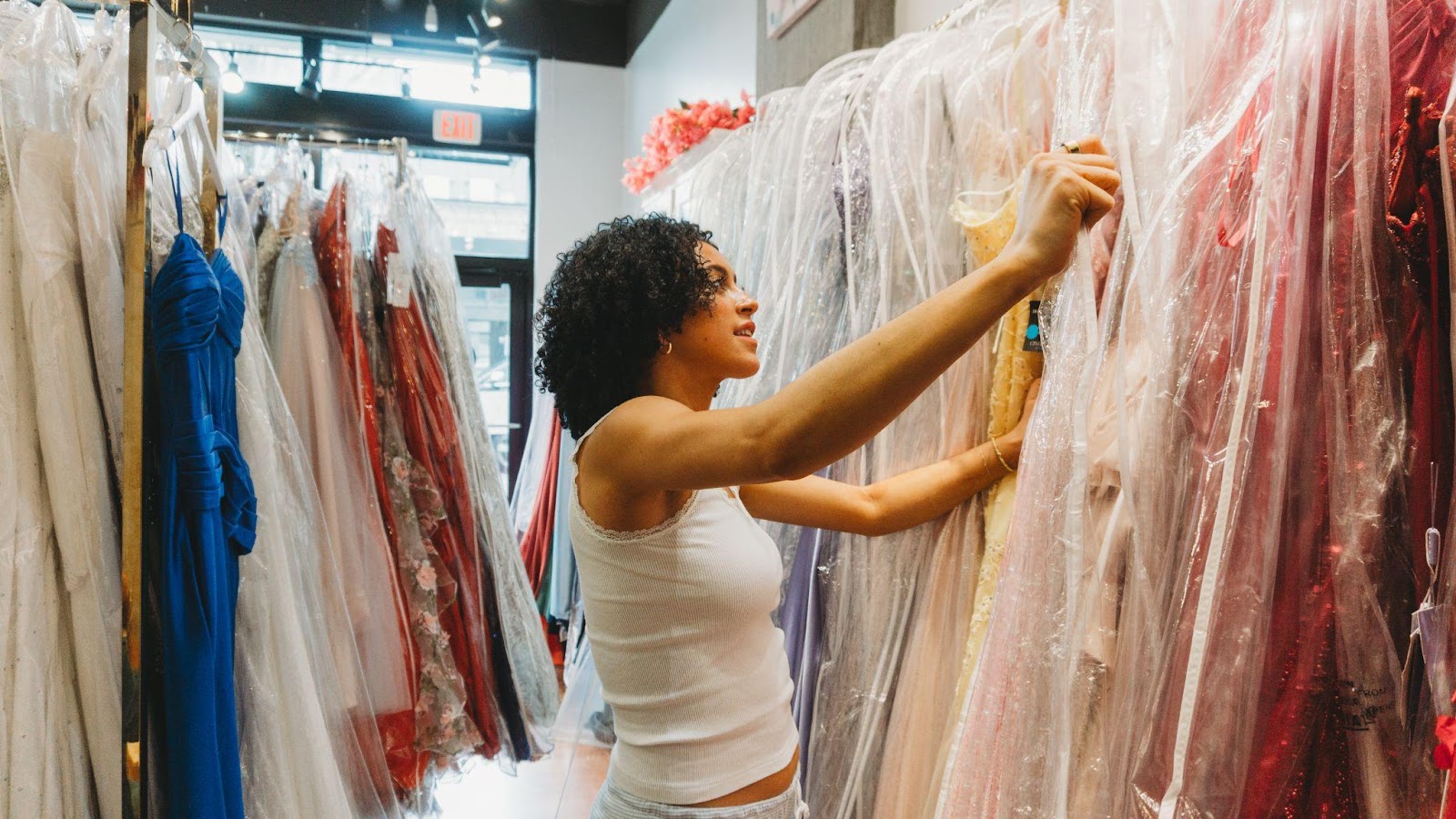 When I first arrived, Fabiola greeted me at the door with a warm smile and a hug. Having known Fabiola through my years as a local titleholder in the Miss Oregon Scholarship Program, a state preliminary to the Miss America Opportunity, we were no strangers. However, I noticed this is how she greeted every person that entered the store -regardless if they were returning customers or experiencing their first visit to Sparkly Gowns.
When I first arrived, Fabiola greeted me at the door with a warm smile and a hug. Having known Fabiola through my years as a local titleholder in the Miss Oregon Scholarship Program, a state preliminary to the Miss America Opportunity, we were no strangers. However, I noticed this is how she greeted every person that entered the store -regardless if they were returning customers or experiencing their first visit to Sparkly Gowns.
Fabiola had a selection of dresses waiting for me to try on during our initial visit, which I will discuss in greater detail in the next section. When I arrived with my sister titleholders, we all got to examine the hundreds of gowns that painted the store’s walls and pick our most desired styles.
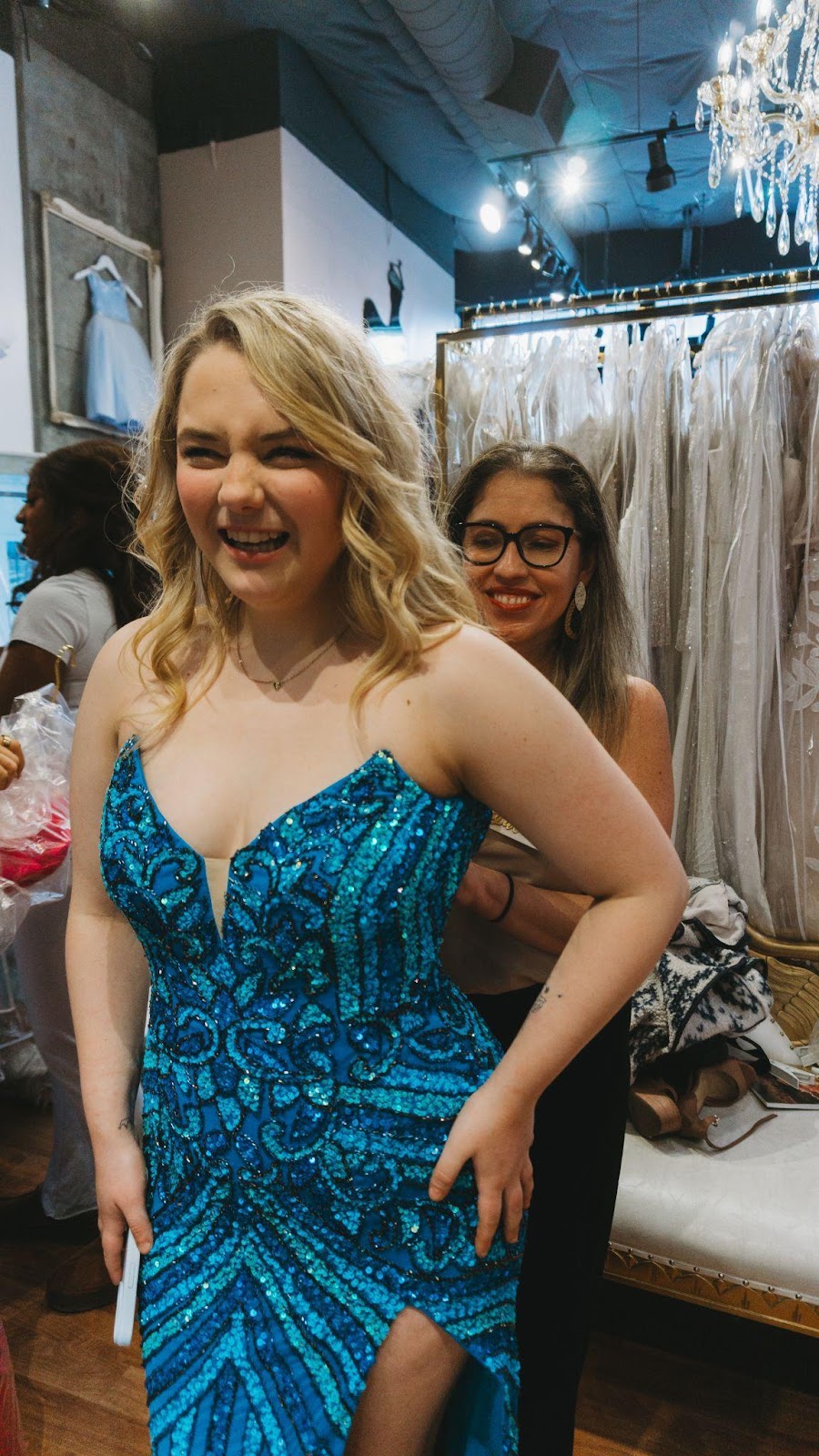 We began trying on various colors, styles, and fits in the dressing rooms while filling the shop with laughter, chatter, and gasps from how gorgeous everyone looked in their gowns. Being in such a comfortable environment, it was easy to become immersed in the experience as Fabiola worked hard in the background.
We began trying on various colors, styles, and fits in the dressing rooms while filling the shop with laughter, chatter, and gasps from how gorgeous everyone looked in their gowns. Being in such a comfortable environment, it was easy to become immersed in the experience as Fabiola worked hard in the background.
When she wasn’t helping to zip, lace, or clip our gowns, Fabiola was paying attention to the styles we chose and would pick other garments for us that she thought we might like to try on. Without fail, she picked a dress that each person looked amazing in, every single time.
THE GOWNS
Now’s for the fun part! In this blog, I will be reviewing three of the gowns that I tried on. These gowns, while impeccable, only represent a sliver of the options that Fabiola has in her store. I’ll address why I didn’t end up getting each gown for myself, but also what I loved most about them.
This first Jovani gown has to be one of my favorite dresses of all time.
Why I loved it: First of all, you wouldn’t guess by looking at it, but this gown is made from 100% recycled fabrics. I LOVE promoting sustainability, it’s a part of my style and my personal brand. In fact, half of my closet is either second hand or made from sustainable materials, so you could imagine my excitement when Fabiola told me that this gown would fit right in with the rest of my wardrobe. It also had a very nice fit, and I am a big fan of the vibrant color.
Why it didn’t end up going home with me: I really can’t think of anything wrong with the dress other than I already have one similar to it in my closet. Otherwise, I would’ve taken it immediately.
This next gown had all of my favorite aspects to it.
Why I loved it: The rhinestone embellishments on the bodice made the dress POP under the studio lights. The corset-style beading gave a really nice shape and structure to the top of the gown. Don’t even get me started on the couture pleating of the shimmery skirt which made the drape fall beautifully. Not to mention, I am a big fan of anything that sparkles!
Why it didn’t end up going home with me: I felt that the top was a tad bit big on me and I personally like a bit more coverage on the top. However, these are just personal preferences or would require minor alterations.
This final gown is unlike anything that I have ever tried on before.
Why I loved it: This fully beaded dress made me feel like an actual mermaid. The vibrant shades of blue had no difficulty sparkling underneath the light and the mesh cut out panels on the sides gave a very shaping silhouette. With its flawless design, you can tell that a lot of hard work went into crafting such a beautiful gown.
Why it didn’t end up going home with me:
It was a touch too big in some areas and I personally prefer a lower slit on my dresses. Other than that, I felt incredible wearing it and I am eager to see the lucky person that gets to own this piece of art.
RECAP
I still think fondly of this weekend I got to spend at Sparkly Gowns. I live nowhere near a gown shop of this caliber and can say with full certainty that the trip to the city was worth it.
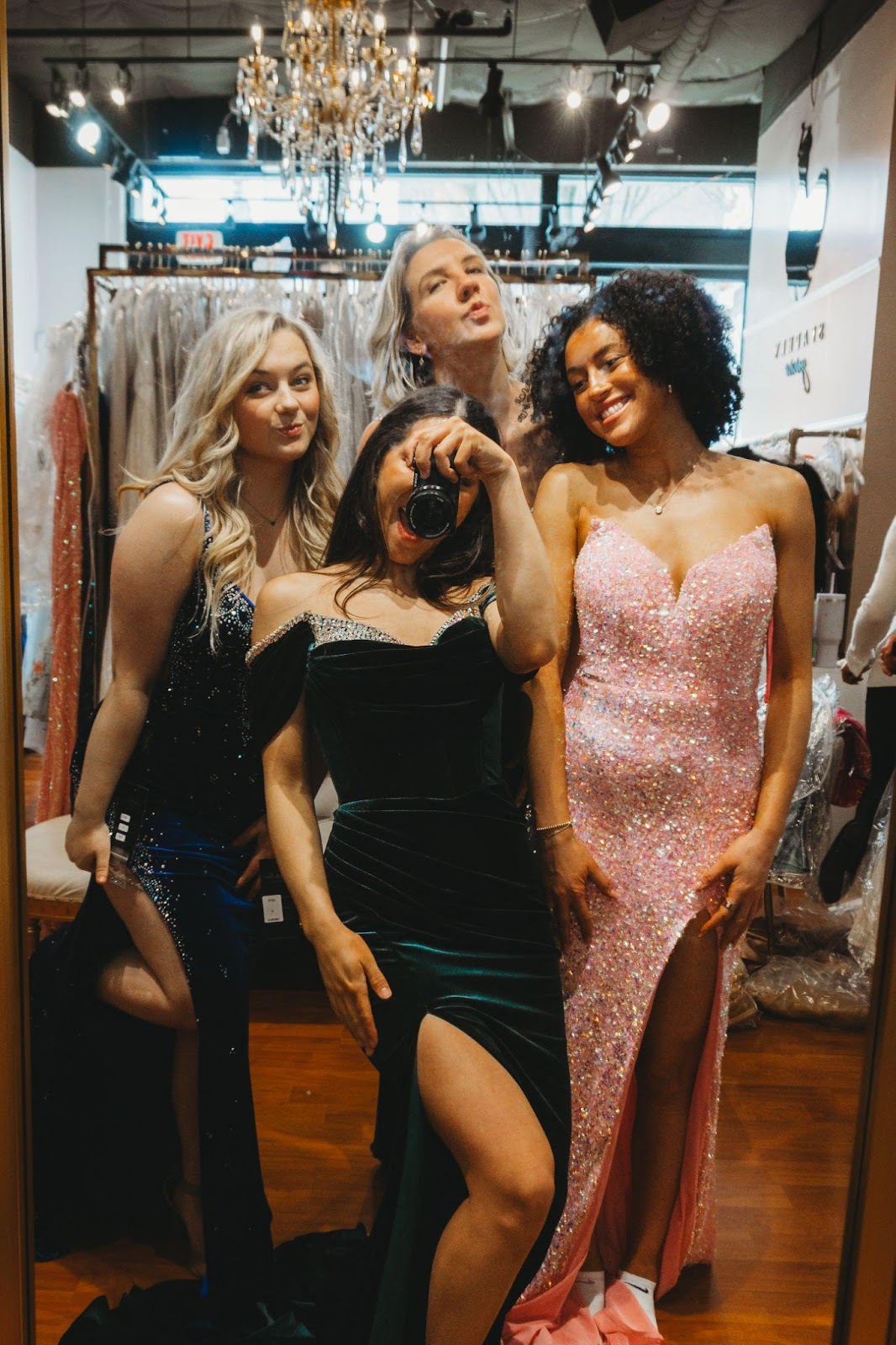 Fabiola showed my sister titleholders and I incredible kindness during our visit, and truly makes all who enter here feel at home. She never makes anyone feel rushed and always ensures that everyone is best taken care of when in her hands. From there, she always shows ample support of her clients or visitors, even after they depart from the store.
Fabiola showed my sister titleholders and I incredible kindness during our visit, and truly makes all who enter here feel at home. She never makes anyone feel rushed and always ensures that everyone is best taken care of when in her hands. From there, she always shows ample support of her clients or visitors, even after they depart from the store.
From the warm hospitality granted by Fabiola to the -what seemed like- endless choices of dresses, I would highly recommend that anyone in search of attire for an upcoming formal event pay this shop a visit.Thank you to Section 36 Forevers and Sparkly Gowns for inviting me to collaborate on this guest blog! It was so fun to get to play the part as a model, photographer, and journalist.
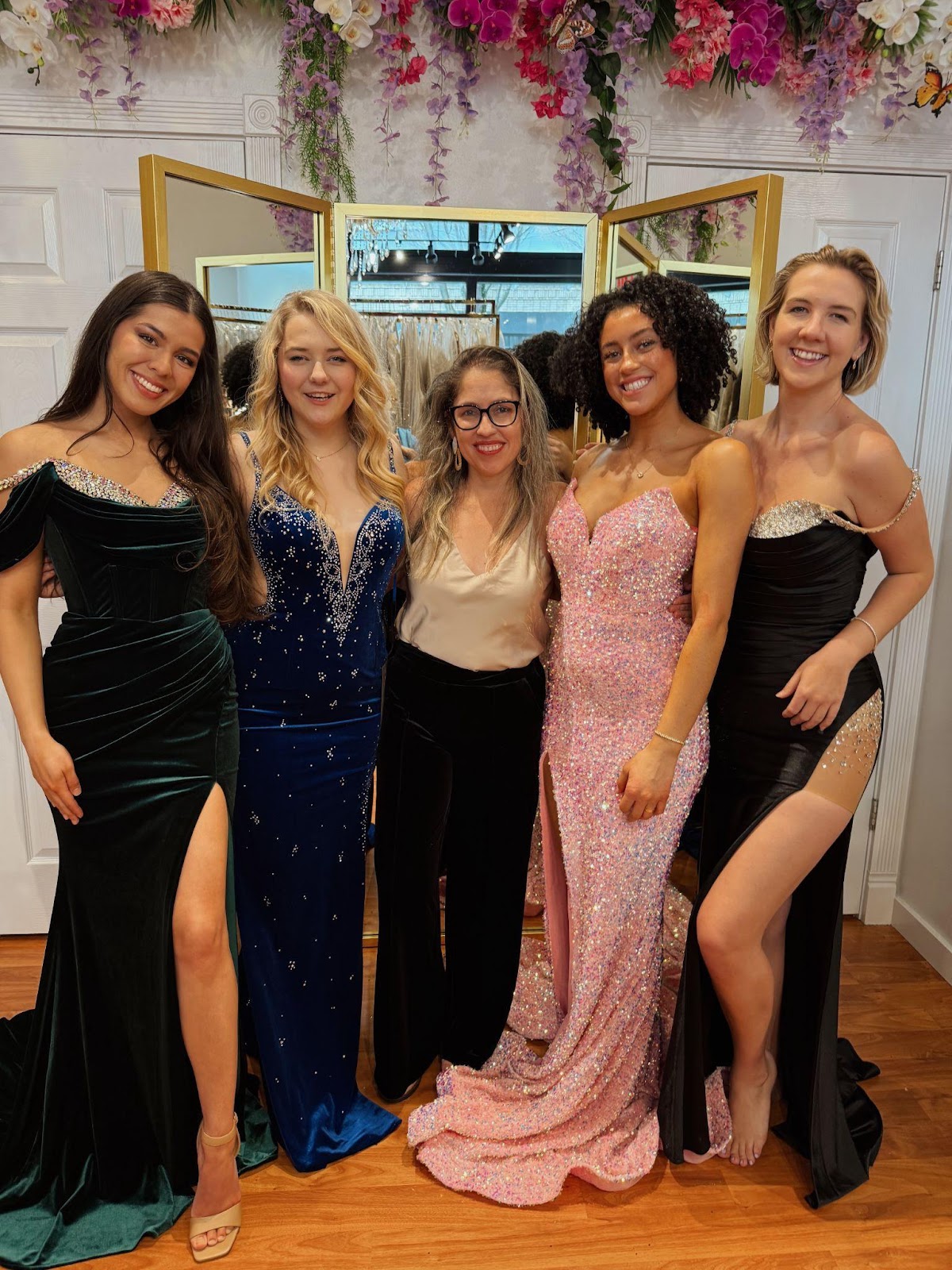
Others pictured in this blog are the following titleholders, representing local titles under the Miss Oregon Scholarship Program: Tessa Bonelli Sanquist, Miss Linn-Benton’s Teen 2025; Amari Young, Miss Marion-Polk’s Teen 2025; and Josephine Cartensen, Miss Marion-Polk 2025
--------------------------
Emily Kaelani Redling is the current Miss Linn Benton (OR). You can follow her on her title's Instagram .
This is her first guest blog for Section 36 Forevers.











